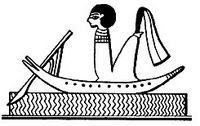Medical hierarchy may influence whistleblowers
In a section sub-titled "Cultural Factors" Lorenzetti reports:
“The medical world is set up in a hierarchical fashion,” says Thomas Moore, PhD, author of Care of the Soul in Medicine: Healing Guidance for Patients, Families, and the People Who Care for Them (Hay House, 2010). After all, he says, “Doctors believe that they have a kind of training that puts them above nurses. [Physicians] can get into a place where they feel very superior.” This superiority is often based on the perception that scientific knowledge and analytical ability are the most important factors in treating patients.
Indeed, modern medicine would not exist without these skills. In a prepared statement, Moore explains: “A highly mechanistic and technological fantasy about life dominates the medical world. Young doctors not only learn the science of medicine, they are [also] indoctrinated into the philosophy that puts science above all other concerns.”
However, focusing purely on analytical proficiencies ignores some of the more intuitive skills that the nursing profession brings to the fore. “Nurses have a very intimate knowledge of their patients,” says Moore. This interpersonal skill is often undervalued. “We don’t respect human savvy quite so much,” he says. “We evaluate workers on technical ability because it’s easier to measure.” But, sometimes, this focus neglects the other ways of measuring patient care, and it may lead to friction between doctors and nurses in the healthcare environment.”
Labels: Care of the Soul in Medicine













